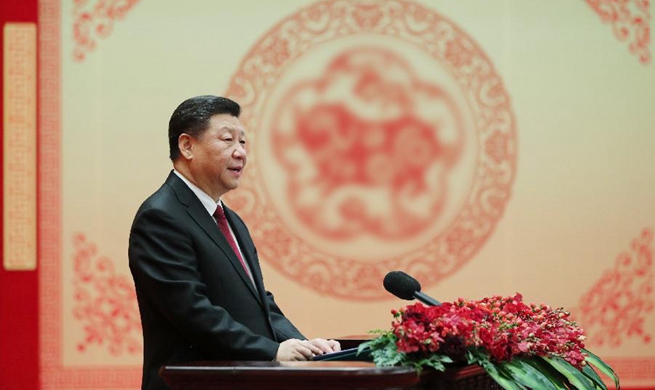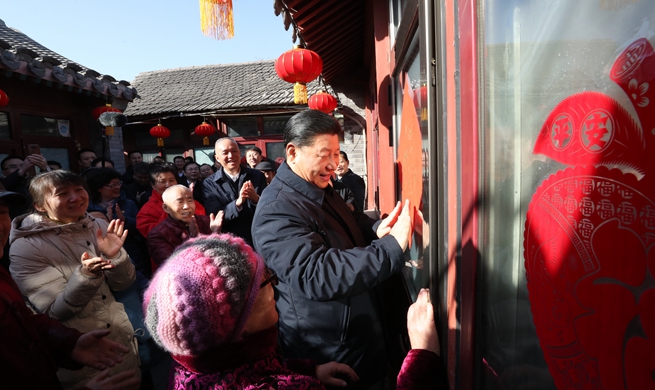BUDAPEST, Feb. 5 (Xinhua) -- The Hungarian government refused to support a migration accord between the EU and the Arab League, according to official sources here on Tuesday.
"Hungary has zero tolerance for migration, and will never back any document that uses the UN's global migration compact as a point of reference," according to the official site of the Hungarian government, quoting Minister of Foreign Affairs and Trade Peter Szijjarto.
Szijjarto responded to recent reports by several Hungarian and foreign news portals citing a German news agency's EU diplomatic source as saying that Hungary's government had refused all of the European Union's offers of a compromise on a joint position on migration, and has isolated itself within the bloc.
The EU diplomatic sources reportedly accused the Hungarian government of hypocrisy, as the agreement with the Arab League would have been intended at stopping illegal migration from Northern Africa and the Middle-East to Europe.
But the accord made a reference to the UN's global compact for migration, which Hungary rejected in mid 2018, just as it rejected the UN's global compact on refugees in December 2018. The Hungarian government argued that the UN's compacts "encourage the emergence of new and dangerous migration flows."
"Pro-migration politicians are continuing to run amok," Szijjarto underlined. "Every EU document will try to refer to the UN's global migration compact in spite of the fact that nine EU member states did not vote for it," he added.
The Hungarian government will never support the compact, which, it says, wants to facilitate immigration. "A document on which there is no unanimous agreement by all member states cannot be a point of reference," he stressed.
The minister added that Hungary's isolation "has long been a pipe dream for those who support migration". "Anyone who says no to migration will continue to be our ally," he concluded.
The migration crisis of 2015 initiated major shifts within European politics and prompted the rise of nationalist movements and governments, who want to close their borders to people moving from the Middle East and North Africa.
More than one million people made the sea crossing in 2015 but the number fell sharply to less than 140,000 in 2018, according to UN figures.
Hungarian Prime Minister Viktor Orban last month declared that splits in the 28-nation bloc were now over migration rather than left-right divisions.
A coalition of governments opposed to migration that includes Hungary, Italy and Poland and even Austria has made it difficult for the bloc to come up with a unified position on the subject.
The ministers of EU and Arab League were preparing Monday for a summit in the Egyptian resort city of Sharm el-Sheikh on Feb 24-25. It will be the first meeting of its kind.













